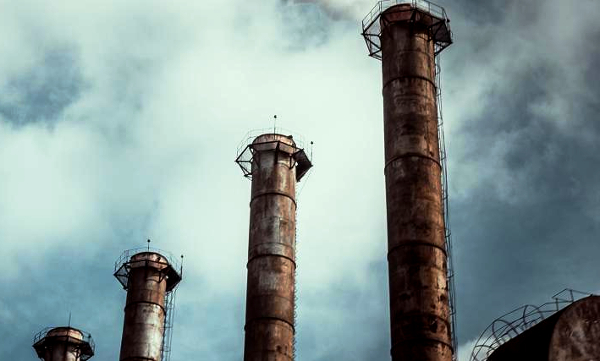New Delhi: In a bid to reduce air pollution and facilitate robust economic growth, the government has launched a emissions trading programme. The pilot programme, the first of its kind in the world, has been initially launched in Gujarat.
The programme was launched on Wednesday by Gujarat chief minister Vijay Rupani.
The programme is a market-based system where the government sets a cap on emissions and allows industries to buy and sell permits to stay below the cap.
It is being initiated in Surat, a densely populated industrial centre, where textile and dye mills release a significant amount of air pollution. As the first market-based approach to regulating pollution emissions in India, it is expected to drastically reduce air pollution at a low cost to both the government and the industry and provide best practices for replicating trading schemes for other emissions.
“With this programme, we are kicking off a new era of cleaner production, while lowering industry compliance costs and rewarding plants that cut pollution in low-cost ways,” according to Rajiv Kumar Gupta, chairman, Gujarat Pollution Control Board (GPCB). “We believe using this market-based system will prove that rapid economic growth, ease of doing business, and breathing clean air can achieved at the same time.”
For effective and efficient pollution control, the emissions trading programme will be tested to understand its impact on emissions, industry costs, and regulatory costs.
The GPCB is carrying out the emissions trading programme with the help of a team of researchers, including Michael Greenstone and Anant Sudarshan from the Energy Policy Institute at the University of Chicago (EPIC), Rohini Pande from the Evidence for Policy Design at the Harvard Kennedy School, Nicholas Ryan from the Economic Growth Center at the Yale University, and others from The Abdul Latif Jameel Poverty Action Lab (J-PAL).
Researchers are evaluating the programme’s benefits and costs, relative to the status quo, using a randomised controlled trial.
“As one of the most sophisticated such initiatives in the developing world, and the first globally to tackle particulate air pollution, Gujarat’s forward-looking vision has the potential to create lasting changes for the people living in this state, as well as become a benchmark for other states in India and countries across the world,” EPIC Director Michael Greenstone said.
The emissions trading programme builds on another early innovation by the GPCB, the use of continuous emissions monitoring systems to track industry emissions in real time.
About 350 industries around Surat have installed continuous emissions monitoring systems and now transmit real-time, high-quality emissions data. The new scheme takes advantage of this technology’s modern, transparent approach to monitoring.
In 2015, the GPCB worked with the same research team to design and test, and based on the test results, implement a new way of carrying out industrial pollution audits, fixing the incentive problem that occurs when third-party auditors responsible for testing plants on behalf of the regulator are also paid by these same plants.
Globally, cap-and-trade systems have been used to reduce other forms of pollution, such as programmes that have successfully reduced sulfur dioxide (SO2) and nitrogen oxides (NOx) in the US. But the Gujarat programme is the first in the world to regulate particulate air pollution, the single-largest threat to human health globally, the government said.
Its effects on life expectancy exceed that of devastating communicable diseases such as tuberculosis and HIV/AIDS, behavioral killers, including cigarette smoking, and even war, according to the Air Quality Life Index (AQLI).
The AQLI, produced by EPIC, converts particulate air pollution into its impact on life expectancy, and finds that it cuts global life expectancy by about two years.
The history of cap-and-trade programmes also reveals that by unleashing market forces, they greatly reduce costs that industries incur while complying with regulations.
According to the Indian Council Of Medical Research (ICMR), air pollution caused one in eight deaths in India in 2017, besides lowering the average life expectancy by 1.7 years. The country”s apex research body said air pollution contributed more to the disease burden of Indians than tobacco consumption.
Source: LM
Image Courtesy: Down To Earth
You may also like
-
Trade Connect E-platform For Exports Is Single Window, Fast, Accessible And Transformational: Shri Piyush Goyal
-
Dot Simplifies Approval Processes For Telecom Licenses And Wireless Equipment
-
Coal Production and Supply Trends on Positive Trajectory
-
Union Minister To Release Booklets On Promotion Of Indigenous Species & Conservation Of States Fishes
-
2nd India-Japan Finance Dialogue held in Tokyo on 6th September, 2024
